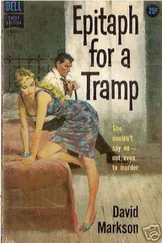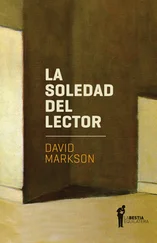For that matter her painting itself is now in my head as well, even though I have not given that a thought for a week or more.
The reason I have not given that a thought for a week or more, as it happens, is because it is in the room with the life of Brahms, and the atlas, and to which the door is closed.
But which has therefore now brought the life of Brahms and the atlas into my head, likewise.
Although what I am next forced to wonder is what might happen if I were to decide that I have Brahms himself in my head.
Would it be the real Brahms, or the Brahms from the life of Brahms?
And which one of them wrote The Alto Rhapsody, then?
Or do I perhaps have no idea what on earth I mean by this distinction?
At least it has suddenly occurred to me that the Achilles from the seventh grade who could not catch the tortoise is the same Achilles I have been writing about for all of this time.
Well, it had simply not struck me that way before, is all.
Even if I now realize that this means the tortoise was faster than Hector was too, since Achilles did finally catch Hector, even though Hector ran and ran.
Then again, I doubt that the tortoise was the same tortoise that an eagle was said to have dropped on Aeschylus's bald head, which is how Aeschylus was said to have died.
There is an explanation for the eagle having done this, incidentally.
The explanation being that presumably the eagle wished to crack the shell of the tortoise, and believed that Aeschylus's bald head was a rock.
On my honor, it was said that this was how Aeschylus died.
When Aeschylus wrote about all of that bloody business in the bath with Agamemnon and Clytemnestra and the net, by the way, he put in a terribly sad part for while Cassandra is waiting to die herself.
What Cassandra thinks about is how lovely everything had been when she was a little girl, at Troy, and used to sit and play.
Beside the banks of the Scamander.
This being another sort of thing that artists do.
Then again Cassandra is not carried off to Greece at all, in Les Troyens.
What Berlioz does, instead, is have her kill herself, once Troy falls.
Perhaps Hector Berlioz was named after the same Hector also, come to think about it.
I do not remember anything in the opera about anybody lurking at windows, on the other hand.
Although it was Herodotus who wrote the line about the entire war having been because of a single Spartan girl, which I do believe I was trying to remember a good number of days ago.
Raphael and Giulio Romano were two more artists who painted versions of Helen being abducted, incidentally, just as Rubens and Van Dyck both painted versions of Achilles hiding among the women.
I find it interesting, when teachers and pupils do that.
Although Rubens was sometimes not very much happier about Van Dyck than Titian was about Tintoretto, actually.
Even if he did not kick Van Dyck out, what he did was always give him just faces to do, so that he himself could keep on being the best at the parts where everybody is always touching everybody else.
Rubens also spoke five languages, which I mention only because of having mentioned that Rembrandt could speak only one.
Have I said that I brought in an armful of red roses, earlier this morning?
Or that Utrillo actually painted certain canvases by copying scenes he found on picture postcards?
Meantime that question of things existing only in one's head may still be troubling me slightly, to tell the truth.
Basically this is because it has just now come to mind that the fire I am perhaps going to build at the garbage disposal area, in order to watch it glisten on the broken bottles, is something else that exists only in my head.
Except that in this case it is something that exists in my head even though I have not yet built the fire.
In fact it exists in my head even if I may possibly never build the fire.
Moreover, what is really in my head is not the fire either, but that painting by Van Gogh of the fire.
Which is to say the painting by Van Gogh that one can see if one squints just a little. With all of those swirls, as in The Starry Night
And with anxiety in it, even.
Even if a certain amount of the anxiety may be simply over the likelihood that the painting will not sell, of course.
Although as a matter of fact what has now suddenly happened is that I am not actually seeing the painting itself, but am seeing a reproduction of the painting.
In addition to which the reproduction even has a caption, which says that the painting is called The Broken Bottles.
And is in the Uffizi.
Now obviously there is no painting by Van Gogh called The Broken Bottles in the Uffizi.
There is no painting by Van Gogh called The Broken Bottles anywhere, in fact, including even in my head, since as I have said what is in my head is only a reproduction of the painting.
I suspect I am getting mixed up.
All I had started to say, I think, is that I am seeing a painting that Van Gogh did not paint, and which has now become a reproduction of that painting, and which to begin with is of a fire that I myself have not built.
Although what I have entirely left out is that the painting is not actually of the fire either, but of a reflection of the fire.
So in other words what I am ultimately seeing is not only a painting which is not a real painting but is only a reproduction, but which is also a painting of a fire which is not a real fire but is only a reflection.
On top of which the reproduction is hardly a real reproduction itself, being only in my head, just as the reflection is not a real reflection for the same reason.
No wonder Cezanne once said that Van Gogh painted like a madman.
At this rate the next thing I am going to ask is if my roses will still be red after it gets dark.
On second thought I am not going to ask if my roses will still be red after it gets dark.
Or even if Cezanne ever happened to talk to anybody about Van Gogh personally, before he said that.
Which would naturally make his insight rather less than memorable, if he had.
I mean if Gauguin had taken Cezanne off into a corner somewhere and muttered a thing or two, for instance.
Or if Dostoievski did.
The dog which would not stay off Emily Brontë's bed was named Keeper, incidentally.
And the way Euripides was said to have died was by having been attacked by dogs, in fact, although I mention this only because of having mentioned Aeschylus and the eagle.
But what this reminds me of is that how Helen died, according to one old legend, was by being hanged from a tree, by jealous women.
Then again, another story insisted that she and Achilles became lovers, and lived forever on a magic island.
Although the identical story was sometimes told about Medea and Achilles.
Well, doubtless both of those stories arose because people were distressed at the notion of Achilles being left in Hades, as when Odysseus visits him there, in the Odyssey.
This does not occur until after Achilles is killed by Paris, of course, by being struck in the heel with an arrow.
In fact Paris himself has gone to Mount Ida to die by then, as well, because of still another arrow.
Even if one is forced to read books by people with names like Dictys of Crete, or Dares the Phrygian, or Quintus from Smyrna, to learn such things, since the Iliad does not go that far.
I dropped the pages from those books into the fire after reading the reverse sides of each too, as I recall.
In the Louvre, this would have been, which is perhaps three bridges away from the Pont Neuf.
Once, that same winter, I signed a mirror. In one of the women's rooms, with a lipstick.
Читать дальше












